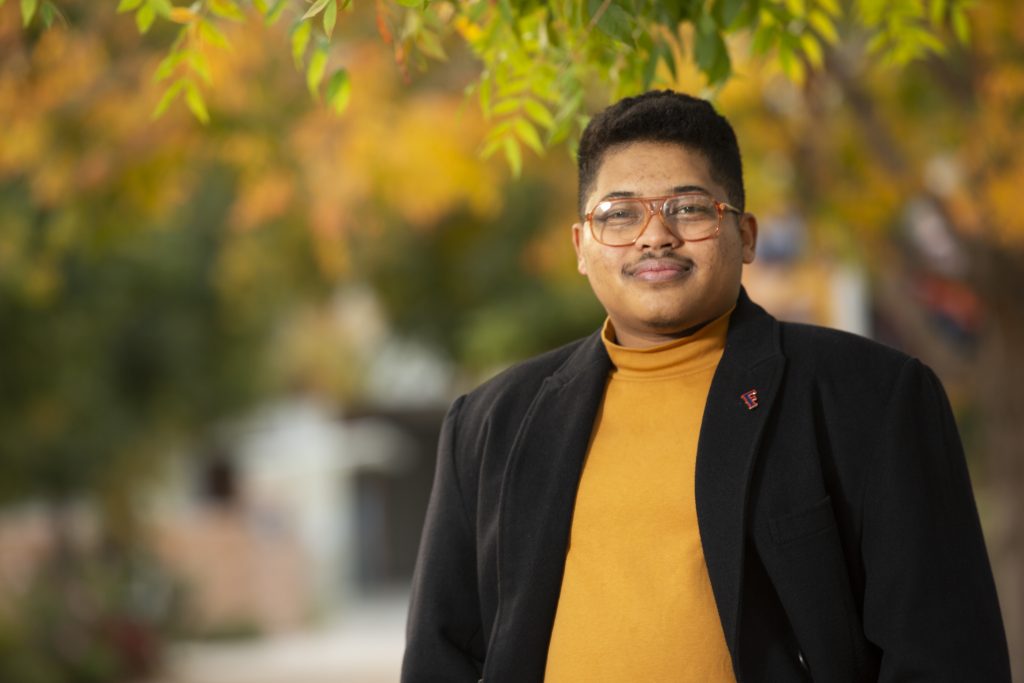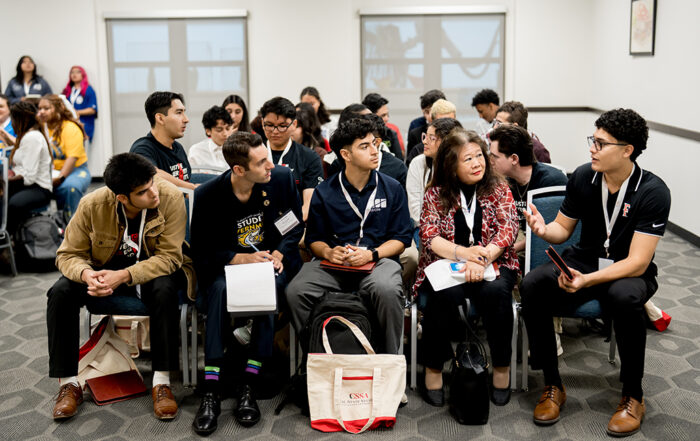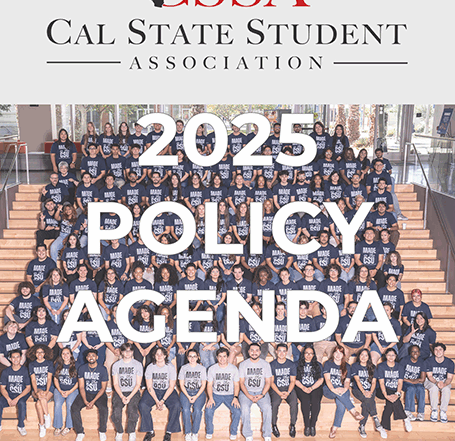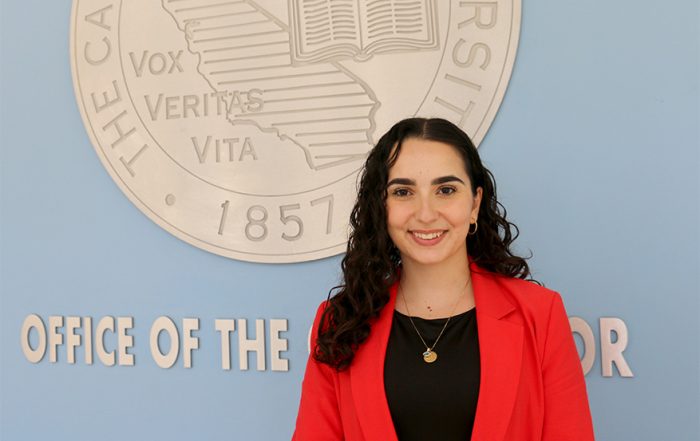
January 2022 | CSSA President Alferos’ Report to the CSU Board of Trustees
January 25, 2022
Thank you Chair Kimbell and greetings to the Board of Trustees
I wish you all a season’s greetings and happy new years as we find ourselves entering 2022. May this year bless us with health, learning, and growth.
I would like to start off by first taking the necessary time to thank the incredible student advocates who continue to inform the efforts of CSSA. Specifically, I would like to personally acknowledge the impact of Manmeet Singh, an incredible student advocate who helped shape our organization’s commitment to serve caste-oppressed students. Within this, CSSA is supports the addition of Caste Oppression to the CSU’s Anti-Discrimination Policy and will continue to stand firmly behind our Dalit and oppressed students.
It is my pleasure to provide you all with an update on the workings of CSSA. Since we last met, CSSA has been active in implementing and actualizing our policy agenda. We’ve been working on a number of different issues ranging from how to best support students with dependents, ensuring access to affordable classroom materials, and financial aid reform.
This past weekend, we hosted our plenary and like this meeting, while we were supposed to be in person, the omicron variant and continued surge in COVID-19 cases and the impact to our health care system, saw us pivot to a virtual modality. This did not keep us from having a lively and productive meeting and, in this, a number of actions took place and I wanted to highlight a few of them for you today:
First, our Systemwide Affairs committee received a presentation from AVC April Grommo on the recommendation to remove standardized testing from undergraduate admission requirements. Though we will be taking a formal position on this issue next month, students are generally supportive of this.
Our legislative affairs committee, and our board, voted to sponsor AB 1625 by Assemblyman Jose Medina relative to student trustees. Currently, student trustees do not have a grace period after their term is over which has often left only one student voice on the board. This bill would allow the outgoing student trustee to continue to serve until January 1st or until the Governor appoints a new student trustee, whichever comes first, the same grace period currently offered to the faculty trustee. This legislation, while clean-up and technical in nature, is VITAL in ensuring that students are always part of the conversation.
CSSA will also be co-sponsoring the legislation to modernize the Cal Grant program. This undertaking is many years in the making at CSSA, and we are excited that our board continues to prioritize the need for our state’s financial aid programs to be modernized and to meet the needs of our students. We look forward to working with the Governor, legislature, our partners here at the Chancellor’s office, and other equity groups to ensure that at long last, we can finally fix financial aid.
With that shared, I also feel it necessary to share some concerns I have received since the start of this new year from students across our system. As we all returned home to celebrate the holidays and round out what has truly been a difficult year with family and loved ones, many of us were concerned about the threat this could pose on our public health system. Heeding the lesson we learned in 2020, many of our students were concerned with a surge in COVID-19 cases at the start of the semester. Following these concerns, Chancellor Castro announced a postponement of return to the Long Beach office for all staff, which sparked some campuses to follow suit. Though many campuses joined in starting this semester virtually, many campus leaders remained hesitant in following through. What resulted was a confused and disjointed mess of public statements and emails in which campuses would individually alert students that they would either return as planned or begin the semester virtually, with some campuses switching plans days apart. Meanwhile, my students are confused, trying to find what updates their campus has to provide while also trying to find answers to critical questions like when they can return to on-campus housing, do they need to move their travel plans to adjust for this, and what support will be offered if they cannot take classes where they are.
I wish to remind this body that I am the third President of my students to serve during this pandemic. To assume that this confusing mess of communication is the best we can provide ignores that not only have we had to handle this before, but that we could have accurately predicted that we might see a surge in cases following the busiest holiday season in the country. Regardless, what is of most concern is the sheer number of campuses that remained hesitant to take the necessary steps to keep our campuses safe. Though we have power and strength in our governance as 23 different campuses, it is in moments of crisis like these that we must come together to function as one system. In this, our students believe that we must be proactive about keeping our campuses safe and take necessary precautions to meet students where they are.
In this, we as students endorse the leadership that Chancellor Castro has continued to provide in his careful and intentional management of campus repopulations, and will continue to work with both the Chancellor’s Office as well as our campus Presidents to ensure that we are doing all that is necessary to keep our campuses healthy.
Lastly, I want to share some feedback on an issue I feel is the largest threat present to our system. You all may recall my November report where I shared how critical it is that we embrace a shared culture of shared governance in order to make any progress as a system. In this, it has become apparent that we foundationally define shared governance differently. Historically, we have come to know shared governance as the collaborative decision making shared between faculty and administrators. Though we do believe that faculty provide a necessary perspective and shared commitment to institutional advancement as we do, I want to make clear that this definition is antiquated and threatens the very progress we boldly attempt to make. If we truly intend to commit ourselves to our noble cause of education for all, we MUST partner with our student leaders, as well, to ensure ALL voices are empowered and present.
Though I shared these concerns before inspired by our failures to properly address campus safety, I come to you this time with the same concern instead inspired by our handling of the COVID-19 Pandemic. In our discussion this past plenary, our board was vocal at how inaccessible they felt many of their administrators are. Many shared horror stories of how uninformed and unprepared they were left as their administrators felt leveraging their partnership and perspective as inconvenient.
To say this is disappointing is an understatement. It is an insult to all of us students who volunteer our time and energy during such a crisis, oftentimes underfunded and under supported, to still be left in the dark on critical issues impacting our constituents. This says nothing to the fact that this pandemic is not new to any of us. As I said before, I am the third President of our students to serve during this same pandemic and will not be the last. There is truly no excuse for our refusal to work in tandem with our student leaders and to provide proactive plans to keep our campuses safe.
In reviewing the reports of our student leaders, I feel I must clarify the changes demanded of our modus operandi. To be crystal clear: shared governance cannot look like refusing to heed student concerns whilst calling them back to campus amidst a surge in COVID cases. Shared governance cannot look like simply calling ASI Presidents to let them know of a decision that has already been made, or even worse to not inform them at all. Shared governance cannot look like barring students outside of the ivory towers of these positions because it simply feels more convenient.
And though I share this rather impassioned speech to unequivocally define the core needs of our students, I also feel it necessary to share the few success stories found in our system. Though this crisis has tested every square inch of the fabric of our leadership, some of our Presidents and campus leaders have risen to the occasion and heeded our call. For, in this system, shared governance has and must continue to look like including student leaders on COVID-19 Taskforce committees. Shared governance has and must continue to look like proactively informing student leaders of all resources being gathered to safely repopulate our campuses. Shared governance has and must continue to look like actively seeking the advice of my ASI Presidents to build partnerships through crisis.
Shared governance has and must always look like leading decisively and shoring it up with empathy.
For we are all facing a crisis to this institution greater than this pandemic. Greater than life threatening viruses, vast economic and racial equity gaps, and systemically racist institutions, is the crisis of our empathy. At its root, my students are coming to you all bearing their most vulnerable humanity; scared to risk their lives returning to campuses that are not safe, afraid they may fall through the cracks of our ever-persistent equity gaps, traumatized that they may become the next statistic of police violence. And if we truly, honestly, ever hope to address any of these issues and create an institution worthy of our students’ success, we must bring honesty to face our history.
In this, I would like to thank the ever-present leadership in our system. To Chancellor Castro and EVC Alva, thank you for continually having our student’s best interests at heart and being passionate ambassadors for a new shared governance. To the Presidents and administrators who actively seek out our student leaders, Presidents and administrators who heal our campuses through building partnerships with my students, thank you for choosing to rise to the occasion. Our system and our students are truly better supported under your leadership and I shall continue to work with you as partners in building towards a CSU we can all truly be proud of.
Thank you, Chair Kimbell, that concludes my report.



